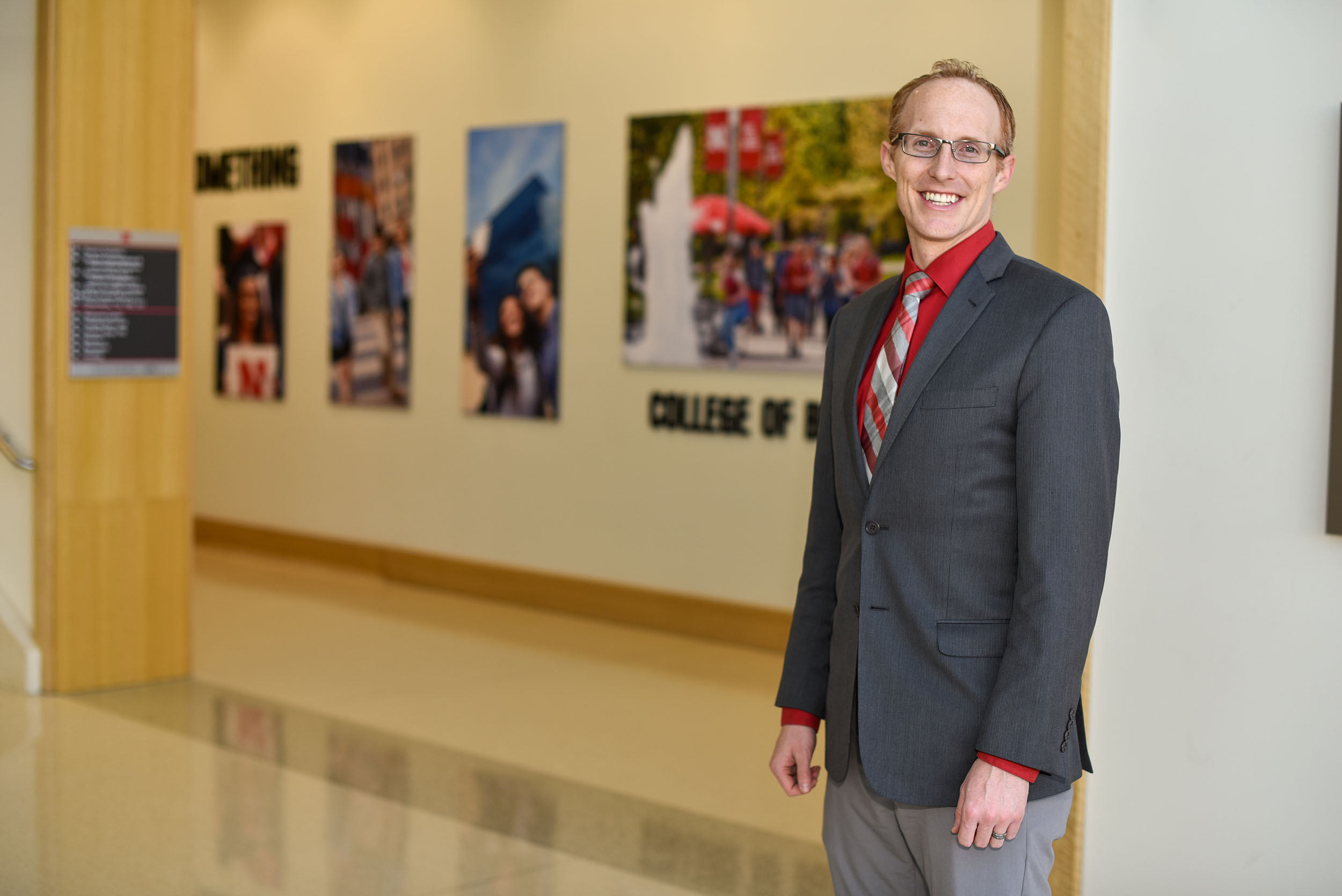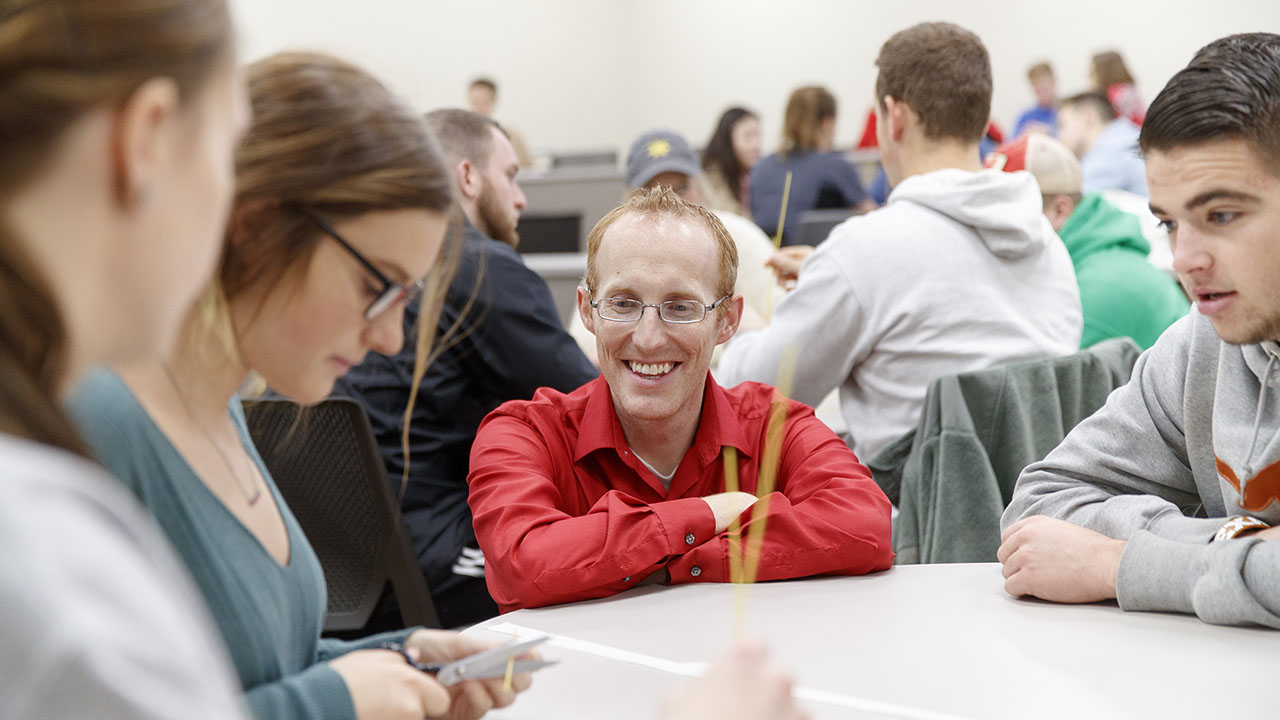
During stressful times, consistency heightens performance and well-being.
That simple message underscores recent research by Troy Smith, assistant professor of management in the University of Nebraska–Lincoln’s College of Business. As the COVID-19 pandemic stretches on, Smith has a few helpful tips for those facing disruption in their daily routine.
“Our research shows employees display greater performance and well-being when the level of challenging tasks they work on is consistent or stable over time,” Smith said. “However, employees display poorer performance and well-being when the level of challenging tasks they work on fluctuates or is inconsistent over time.”
Smith’s research, “When Challenges Hinder: An Investigation of When and How Challenge Stressors Impact Employee Outcomes,” was published in the Journal of Applied Psychology and took place before the COVID-19 pandemic spread across the globe. Nevertheless, he can see applications for enhancing performance whether employees are working from home or adapting to social distancing policies in the workplace.
The study distinguished between challenge and hindrance stressors. Challenge stressors, such as introducing levels of complexity and accountability, tend to generate personal growth and achievement. Conversely, hindrance stressors, such as changing bureaucratic policies or constrained resources, tend to interfere with accomplishments or achieving goals.
“For most people, the pandemic is likely a hindrance stressor because it gets in the way of completing their tasks,” he said. “While organizational leaders have limited control over what is happening with COVID-19, they can control the types of tasks or responsibilities they give employees during the pandemic.”
Smith pointed out that consistently giving employees high levels of challenge stressors as opposed to high-and-then-low levels makes the difference.
“Employees perform better and report greater well-being when faced with consistently high levels of challenge stressors over time, as opposed to fluctuating levels of high and low (or vice versa),” he said. “In other words, our research shows employees thrive when they consistently have high levels of challenging work to do.”
The study surveyed more than 150 restaurant industry employees over eight weeks. Employees who experienced greater variance in work-related challenge stressors reported less attentiveness and more anxiety, which undermined their task performance and helping behaviors. However, employees who experienced consistent levels of challenge stressors over time reported more attentiveness and less anxiety, which prompted higher task performance and helping behaviors.
Shannon Taylor, a management professor from the University of Central Florida and co-author of the paper, believes uncertainty in the pandemic makes the research particularly pertinent.
“No one knows how this pandemic will unfold or how long we’ll need to adapt,” he said. “Now more than ever, managers should strive to provide employees with some predictability and consistency. Otherwise, tasks that seem like exciting challenges will simply be overwhelming.”
In the second part of the paper, researchers studied 325 employees from a public university in the United States. Subjects responded to questions assessing stress levels and indicating preparedness for upcoming challenges. Similar declines in performance were observed when challenge stressors varied over time.
“Understanding stress is more important than ever when working remotely,” Taylor said. “Managers want employees to feel some stress to help them develop, but it needs to be predictable or it will hurt growth. Given all the uncertainty of the pandemic, some consistency would go a long way toward improving performance.”
Smith believes taking the effects of the pandemic in stride can help managers make a smooth transition that helps everyone.
“It may be tempting to give employees challenging work one week and less challenging work the next so they can have a ‘break’ from stress, but our research suggests this approach hurts employees’ performance and well-being,” he said. “Managers should strive to not allow the coronavirus or other things to get in the way of giving employees consistent challenges over time. It’s the fluctuation of challenges that leads to anxiety.”
Other co-authors on the study included Michael Cole, of Texas Christian University’s Neeley School of Business; Nikolaos Dimotakis, of Oklahoma State University; Christopher Reina, of Virginia Commonwealth University’s School of Business; and Christopher Rosen and Lauren Simon, of the University of Arkansas’ Walton College of Business.
Learn more about Nebraska’s Department of Management.










